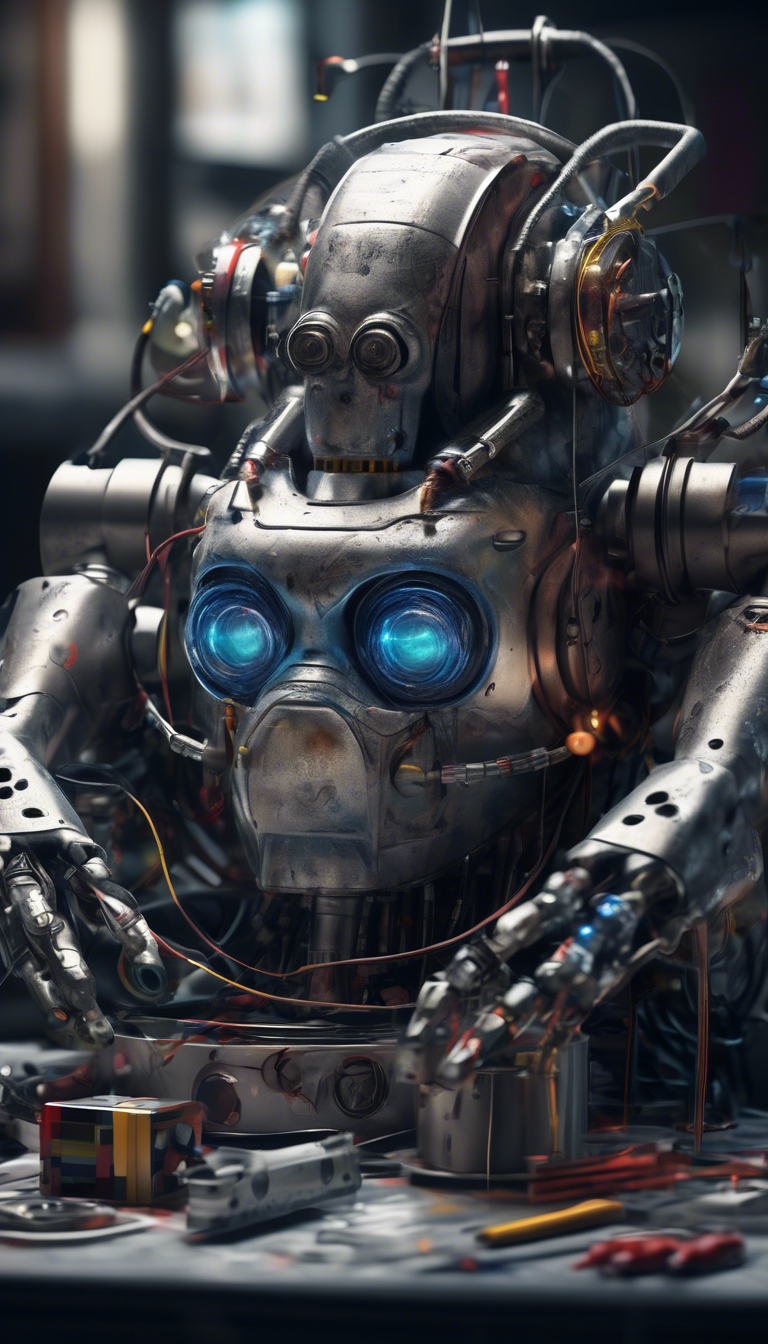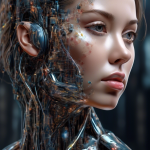Strategies for AI Mastering in Today’s Evolving Tech Landscape
In today’s fast-paced tech landscape, mastering artificial intelligence (AI) isn’t just the key to staying competitive; it’s essential for innovation and growth. Companies across all sectors are integrating AI into their operations, transforming everything from customer service to product development. Here are some advanced strategies to effectively master AI in this ever-evolving environment.
Understanding the Foundations of AI
Before diving deep into AI mastery, a solid understanding of its fundamental concepts is crucial. This includes:
- Machine Learning (ML): Familiarize yourself with algorithms and data structures that allow machines to learn from data.
- Deep Learning: Explore neural networks, particularly for tasks that require pattern recognition, such as image processing.
- Natural Language Processing (NLP): Understand how AI can interpret and generate human language, which is essential for chatbots and voice assistants.
Choosing the Right Tools and Technologies
To effectively implement AI strategies, selecting appropriate technologies and tools is vital. Consider the following:
- Cloud Platforms: Leverage services like AWS, Google Cloud, or Microsoft Azure for scalable AI applications.
- Open Source Libraries: Utilize frameworks such as TensorFlow or PyTorch for developing machine learning models.
- Data Management Systems: Invest in robust solutions for data storage and retrieval, as high-quality data is essential for AI success.
Building a Skilled Team
Having the right team in place is essential for mastering AI. This entails:
- Hiring Experts: Recruit data scientists, AI engineers, and domain experts who can drive your AI initiatives.
- Continuous Training: Provide ongoing learning opportunities for existing staff, ensuring they keep up with the latest AI trends and technologies.
- Cross-Functional Collaboration: Foster collaboration between AI teams and departments like IT, marketing, and operations for a holistic approach.
Emphasizing Data Quality and Ethics
AI models depend on data quality. Here’s how to prioritize data ethics and integrity:
- Data Cleaning: Regularly clean and preprocess data to enhance model accuracy.
- Ethical Considerations: Ensure compliance with regulations such as GDPR and consider the moral implications of AI deployment.
- Diversity in Datasets: Avoid biases by diversifying your data sources, leading to more fair and robust AI outcomes.
Implementing Agile Development Practices
The rapidly changing nature of technology requires an agile approach to AI projects. Adopt these practices:
- Iterative Development: Break projects into smaller segments, allowing for quick feedback and adjustments.
- Prototyping: Create prototypes to test ideas early in the development cycle, revealing potential issues before full-scale implementation.
- Regular Review: Implement a schedule for regular reviews and updates to adapt AI strategies to changing business needs.
Fostering a Culture of Innovation
Encouraging a culture that promotes experimentation can lead to groundbreaking AI applications. Here’s how:
- Encourage Creativity: Allow team members to brainstorm and explore unconventional approaches, leading to innovative solutions.
- Support Risk-Taking: Create an environment where failure is seen as a learning opportunity, fostering a mindset that embraces continuous improvement.
- Celebrate Successes: Recognize and reward teams for achieving milestones in your AI projects, motivating further innovation.
Mastering AI requires a multifaceted strategy that combines understanding core concepts, leveraging the right technology, and fostering a skilled and innovative team. By focusing on these critical aspects, businesses can not only adapt to the rapid changes in the tech landscape but also utilize AI to drive meaningful transformation and growth.
The Impact of AI Mastering on Creative Industries and Content Production
The rise of artificial intelligence has significantly reshaped numerous fields, particularly creative industries and content production. AI mastering technology, in particular, has emerged as a key player in redefining how audio and visual content is produced, edited, and distributed. By harnessing advanced algorithms and machine learning capabilities, creators are now able to achieve unprecedented levels of efficiency and quality in their work.
One of the most notable impacts of AI mastering is its ability to streamline the audio production process. Traditionally, mastering demanded a high level of expertise and took substantial time to perfect. AI tools, however, can automate various aspects of this process. They analyze audio tracks, make intelligent adjustments, and apply appropriate processing to ensure that the final product meets industry standards. For example, AI mastering platforms can:
- Equalize sound levels to achieve a balanced mix.
- Compress audio to enhance clarity without compromising quality.
- Offer loudness normalization that aligns with streaming service requirements.
Pioneering platforms like LANDR and eMastered are at the forefront of this innovation, providing accessible solutions for artists and producers alike. By eliminating the need for expensive studio time and expert engineers, these tools democratize high-quality audio production. Independent musicians now have an opportunity to compete with established record labels on more level ground.
AI mastering doesn’t just simplify production; it also enhances the creative process. Artists can experiment with multiple versions of their tracks in less time. For instance, they can quickly upload a mix, receive instant feedback, and iterate on their work without the downtime traditionally associated with mastering. This shortened feedback loop encourages creativity and accelerates project timelines, allowing artists to focus more on their craft rather than getting bogged down by technicalities.
Similarly, video content production stands to benefit immensely from AI mastering applications. Advanced AI tools can automatically analyze video footage, syncing audio to maintain a professional standard. Through features such as:
- Auto-color correction and grading that enhance visual appeal.
- Intelligent editing which identifies key moments for seamless editing.
- Automated video mastering that prepares content for various formats and platforms.
These capabilities not only save time but also allow creators to produce high-quality video content with minimal effort. With platforms like Adobe Premiere Pro integrating AI functionalities, editors can spend more time crafting narratives while leaving the tedious technical adjustments to technology.
Furthermore, AI mastering tools play a crucial role in streamlining the distribution of content. For example, metadata tagging can now be automated, facilitating more efficient content discovery. When audio or video passes through an AI mastering service, it often generates optimal tags, descriptions, and even promotional material based on the content’s unique characteristics. This automation eases the burden on creators, allowing them to concentrate on producing remarkable content rather than getting lost in administrative tasks.
However, with any technological advancement, there are both proponents and critics. Some argue that the rise of AI mastering devalues the artistry of sound and video production, arguing that human touch is essential for truly unique content. While it’s true that automated processes can lead to generic outcomes, it’s crucial to recognize that AI tools are just that—tools. When wielded by creative professionals, they serve to enhance the artistic process rather than replace it.
Ultimately, the integration of AI mastering in creative industries presents an exciting challenge and opportunity. By embracing technology, content creators can focus on pushing the boundaries of their creativity, knowing that the technical aspects of mastering are in capable hands. As AI continues to evolve, it will certainly expand its reach within creative sectors, driving innovation while fostering an environment where artistic expression can thrive like never before.
The future of creative industries will undoubtedly be shaped by these advancements. As artists adapt, they will find new ways to harness AI mastering technologies—allowing them to elevate their craft while redefining what it means to create in a rapidly changing digital landscape.
Conclusion
As we navigate through the complexities of today’s technological landscape, mastering the art of AI stands out as a critical skill for professionals across various sectors. Learning innovative strategies to harness the power of artificial intelligence can significantly enhance productivity, creativity, and problem-solving capabilities. Whether you are a content creator, marketer, or designer, understanding how to integrate AI tools into your workflow will not only ensure your relevance in a competitive market but also foster a culture of continual learning and adaptation.
AI mastering involves much more than just understanding the technology itself; it requires a strategic approach anchored in practical applications. For instance, content producers can leverage AI algorithms to analyze audience preferences and generate data-driven insights that help tailor their projects. Being well-versed in AI mastering means being equipped to identify which tools will best serve specific needs, from automating mundane tasks to crafting immersive storytelling experiences. This adaptability increases efficiency and empowers creative autonomy, enabling creators to focus on the imaginative aspects of their work rather than getting bogged down in repetitive duties.
The impact of AI mastering extends deeply into creative industries, shaping the future of content production in ways that are both exciting and challenging. With the rise of AI-driven technologies, traditional roles are evolving into hybrid positions that require a combination of human creativity and machine efficiency. This blends artistic vision with automated processes, allowing creators to push the boundaries of innovation while efficiently reaching their audiences. However, this transformation prompts questions about authenticity and the role of human input in creative endeavors. As machines take over routine tasks, creatives can focus on adding value through personal touches, enhancing the significance of human intuition in a world that often leans heavily on algorithms.
Moreover, AI mastering influences collaboration within teams. By employing AI tools for project management and feedback processes, teams can streamline workflows and foster enhanced communication. Team members can easily share insights and collaborate on creative projects without the hindrance of cumbersome traditional methods. The agility provided by AI technology aids in navigating the challenges of fast-paced environments and shifts in market demands, enabling teams to respond proactively rather than reactively. This agility not only increases productivity but also promotes a culture of innovation where new ideas can be explored without constraints.
However, as we embrace the benefits of AI, we must remain cognizant of the ethical considerations that come with it. Understanding bias in algorithms, the importance of data privacy, and the potential for job displacement are vital discussions that should accompany the advancement of AI mastering. Companies must prioritize transparency and ethical standards when deploying AI tools to cultivate trust with users and ensure responsible use of technology. As content creators and professionals, we owe it to our audiences and ourselves to engage with AI in ways that nurture creativity while adhering to ethical guidelines.
As AI continues to evolve, the stakes will only rise. Professionals across all sectors must remain committed to lifelong learning, continuously honing their skills and adapting to new technological advancements. The industry’s landscape is shifting, and those who master the integration of AI into their work will not only thrive but will also pave the way for future generations in creative industries. Embracing AI with a keen understanding of its implications will empower individuals to manage its transformative impact effectively.
The journey towards AI mastering is one of curiosity, exploration, and a willingness to adapt. It requires an open mindset ready to tackle obstacles, embrace opportunities, and promote a collaborative environment. As we delve deeper into the AI realm, let us remember that technology should amplify our human qualities rather than diminish them. The ultimate goal of AI mastering is to enhance our creative prowess, foster deeper connections with our audiences, and elevate the overall quality of content production.
In this rapidly evolving environment, the opportunity to harness AI’s potential is now greater than ever. Let’s approach this challenge with enthusiasm, armed with innovative strategies and ethical considerations that will guide us through the complexities of the creative landscape. By doing so, we not only master AI for our benefit but for the enrichment of the creative industries as a whole, ensuring a harmonious balance between technology and human artistry.


